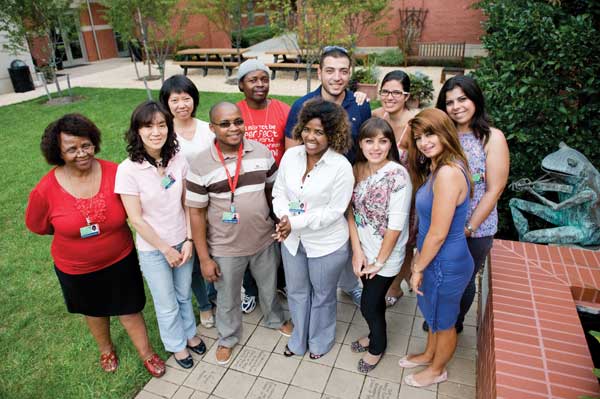Hopkins Leads International Forum For Global Nursing
by Sara Michael
Around the world, nurses and nursing organizations are full of good intentions to provide healthcare to international communities. Unfortunately, their efforts aren’t always relevant or sustainable, and it’s one of the many challenges global nursing leaders face as they work to build more meaningful initiatives.
In an effort to solve shared challenges and make the most of their resources, leaders from the Johns Hopkins University School of Nursing’s Center for Global Nursing hosted a symposium at the 2012 convention of the prestigious Sigma Theta Tau International.
“Our purpose was to convene nurse leaders to look at our common interests, share experiences, and make recommendations to Sigma Theta Tau on how to grow these partnerships,” says Phyllis Sharps, PhD, RN, FAAN, director of the Center for Global Nursing and associate dean for Community and Global Programs, who helped lead the presentation. The recommendations will be incorporated into a manuscript on advancing global nursing leadership initiatives to be published in the society’s journal.
The Hopkins team has decades of global nursing experience teaching, researching, and practicing in China, Thailand, Australia, and countries in Africa and Europe. That expertise made them a natural choice to lead a discussion on creating and facilitating “meaningful and effective global collaboration” that has valuable impacts in the communities in need, says Mary Terhaar, DNSc, RN, director of the Doctor of Nursing Practice program who also led the symposium.
One of the first challenges, and a starting point for the conversation, was defining global nursing, as it can vary among groups with international health care missions. Establishing a standard view would pave the way for leaders to support effective partnerships and tackle some of their shared obstacles.
For example, Sharps notes, how can organizations create a truly collaborative partnership when one country has more resources than its partner country? Similarly, how can you ensure that international health programs are based on the real needs of the community, rather than the interests of the travelers? The goals should be relevant and sustainable, Terhaar says, adding, “It doesn’t help to pop in and do something and leave without having it endure.”
Also participating were Hopkins nursing Professor Marie Nolan, PhD, RN, FAAN, and Patricia Davidson, PhD, RN, from the University of Technology School of Nursing in Sydney, Australia. Leading the symposium for such a prestigious organization was “an honor,” says Martha Sylvia, PhD, MSN, MBA, RN, adding that the effort will advance global nursing at Hopkins and worldwide.
